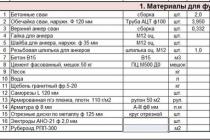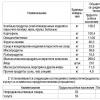04:20 23.12.2016
Former programmer, and now the founder and CEO of WorldQuant LLC Igor Tulchinsky. Photo: ctpost.com
Igor Tulchinsky is the so-called quantum. A specialist who can analyze financial data flows and build on them mathematical models to predict market movements.
Igor is the star of one of the largest Wall Street hedge funds - Millennium Management LLC. The fund, which manages $34 billion of investors' assets, is owned by well-known billionaire Israel Englander.
Of this mass of assets, a portfolio of 4.5 billion is managed by WorldQuant, which is led by Tulchinsky. He used to earn money for Englander directly at Millennium Management for two decades, and then, with the consent of the patron, "broke off."
Little is known about 49-year-old Igor. In general, even his Millennium Management colleagues do not know him well, since the WorldQuant office is located in Greenwich, Connecticut.
As the Wall Street Journal writes, quants are often secretive, sometimes eccentric. And Tulchinsky, apparently, is no exception. He is known for his shaved head, golden chain around his neck, and fondness for black clothing.
Despite the lack of information, something about his life can still be found on the Internet.
According to media reports, in 2012 Tulchinsky owned such an Aston Martin DBS for 180 thousand dollars. Photo: stamfordadvocate.com
Igor Tulchinsky was born in 1966 in Minsk in a family of musicians. His father Alexander makes violins, and his mother Rimma is a pianist. They emigrated from the USSR to the USA with their son in 1977.
Fascinated by new technologies, Tulchinsky learned computer programming. In 1985, one of his works was the video game Death Valley Patrol.
Igor graduated from the University of Texas at Austin and received an MBA in Finance and Business from the University of Pennsylvania.
In 1988, he was invited to AT&T Bell Laboratories as a scientist and researcher. Then he worked at Timber Hill Group LLC, studying computer investment strategies and developing algorithms.
And in 1995, Tulchinsky joined Millennium Management, where he quickly advanced into the ranks of top employees. In 2007 he founded WorldQuant. Now it is 20 offices around the world and more than 500 employees.
In 2014, WorldQuant Ventures also appeared. It acts as a business angel and invests in technology and data processing firms.
Igor talks about his life in Minsk at a meeting with college students. Photo: youtube.com
The company constantly works with young talents. WorldQuant University has been established and this year has 200 online students from over 35 countries.
Finally, the WorldQuant Foundation is established, which awards scholarships to gifted math students and makes donations around the world.
In one of his speeches to students, Igor talked about how at the age of 9 he lived in Minsk - a cold city where there is a lot of snow.
“At that moment it seemed that my whole life would pass in Belarus. I'll get some work. I had a girlfriend from the yard named Natasha, and I thought I would marry her, ”he said.
He then continued his story: “At the age of 15, I was already living in Wichita, Kansas. He worked as a dishwasher in a steakhouse and was about to marry again, this time to the girl Kathy, who worked in the kitchen.
And again the question followed: "To what extent did these plans come true?" The answer was the same: "Zero percent."
Continuing the chain in the same spirit, Igor jokingly concluded that he had never been good at predicting events. And then he summed it up more seriously.
“All I want to say is that plans must be made, they give a general direction. But never fulfilled. And that's okay. We must constantly adapt to the environment, change plans in accordance with incoming information, use our chances, make decisions and act,” he stressed.
And finally, if something doesn't work, you should always be ready to cut your losses, smiling, he added.
Text: Vladimir STATKEVICH
Does it take too much time to look for a job in Minsk? Are you looking for a platform where standing vacancies are collected all over Belarus: in Minsk, Gomel, Mogilev, Vitebsk, Brest and Grodno? Then go to WORK.TUT.BY!
Our database receives daily the most current offers. There is a job for experienced craftsmen and beginners with no experience.
Show all
The functionality of the site WORK.TUT.BY will save your time! Employers will be able to quickly search for employees, and applicants will be able to select interesting vacancies for themselves.
Are there any vacancies in Minsk? Need specialists who are interested in working in Minsk and the region?
Get acquainted with regularly updated resumes on WORK.TUT.BY! Here you will find candidates for a vacant position with the required experience and skill set. All you need to do is post a job. Moreover, by accessing our database, you yourself choose the time to study interesting resumes.
All the tools on the site have proven their effectiveness more than once. Using them, you will definitely reduce the time spent on posting and closing vacancies in Minsk and other cities of Belarus. Now all the information about those who are looking for work in Minsk is at your disposal at the first request.
WORK.TUT.BY - a win-win site for job search!
Site administration: LLC "100 WORKS HERE", 220089 Minsk, Dzerzhinsky Ave., 57,10 floor, room 45-1. Working hours of the enterprise: Mon.-Fri. 09.00-18.00, lunch 13.00-14.00, closed days - Sat., Sun. The site is open 24/7. e.mail LLC "100 WORKS HERE" [email protected]
Settlement account BY12ALFA30122600730090270000 CJSC Alfa-Bank 220013 Minsk, st. Surganova, 43-47
In Russia, in accordance with tax legislation, taxes are distributed among the budgetary levels in such a way that the most significant taxes go to the federal budget. As a result, the own revenues of territorial budgets are extremely small and tax revenues do not exceed one third of the budgets, and in villages and towns - no more than 10%.
But due to the fact that the burden on territorial budgets is constantly increasing, which is associated with the transfer of great powers to regional and local authorities, there is a need for additional funding by the state from both the federal budget and extrabudgetary funds.
Funds to help regional and local budgets can be allocated in several ways.
1. The main method of closing the gaps in the lower budgets is the funds generated by deductions certain percentage of taxes assigned to the higher budget. The main advantage of this method is the interest of the territorial authorities in the good collection of taxes, which form the appropriate funds. As a consequence, this leads to the development of the economic sector of the economy and other areas of activity.
2. The next method of filling the budget deficit are grants. Grants can also be allocated in the form of subsidies and subventions, which are its varieties. Subsidies are provided on the basis of co-financing of targeted costs, in contrast to subventions, which do not require equity participation in financing. This method is used when there is no opportunity to increase tax revenues in the region or localities. The subsidized method is less effective in other situations, as it reduces the economic initiative.
3. In case of dependence of territorial budgets on seasonal fluctuations, budget loans, provided by higher budgets. advantage this method in contrast to the previous one is its recurrence, and hence the need for the development of economic activity.
The main disadvantage of all these methods of assistance to regional and local budgets is the impossibility to fully assess the real state of territorial budgets, even despite their reports. This practice leads, on the one hand, to a rigid dependence of lower budgets on higher ones, and on the other hand, to dependence and, as a result, slows down economic growth.
To solve this problem, it is necessary to redistribute tax revenues from the federal budget to the territorial ones, although this may lead to the independence of the regions from the central government, or to improve the methods of providing lower budgets with the necessary financial resources from higher ones.
Financial support for regional budgets is provided, in addition to the above-mentioned sources, from the Fund for Financial Support of the Regions. Creation this fund was recommended by the World Bank for Reconstruction and Development, whose representatives worked in our country in 1992-1993. As a result, by the Decree of the President of the Russian Federation of December 22, 1993, since 1994, a new form of assistance to the regional budgets of the Russian Federation, the provision of transfers, has appeared.
The Fund for Financial Support of the Regions is formed from the amount of tax revenues from the federal budget, excluding income tax from individuals and amounts of import duties. In order to receive funds from the Regional Financial Support Fund, the region must be assigned the status of “in need of support” or “especially in need of support”.
The status of a "region in need of support" is assigned to those regions whose per capita income is less than the average per capita budget income for all regions of the Russian Federation.
The status of a “region in particular need of support” is assigned to regions that, despite the provision of funds to equalize the income of the population with the average per capita in all regions of the Russian Federation, cannot cover the projected expenses for the next year.
The Regional Support Fund is divided into two parts. From one, funds are allocated to regions in need of support, from the other to regions in particular need of support. The ratio between the two parts is determined based on the planned next year territorial budget.
Financial assistance from this fund is allocated to regional budgets in proportion to their established participation in the funds of the corresponding part of the fund.
The advantage of this type of assistance to regional budgets is one system calculation of funds allocated to the respective territories. This method takes into account the own income of the territories based on tax revenues, the population living in the corresponding territory.
The algorithm for calculating the amount of transfers is as follows:
1) average per capita budget revenues are brought to comparable conditions, and in relation to them the region with the lowest given value is determined;
2) then the funds necessary for the region to achieve the level of average per capita budget income following it in terms of this indicator of the subject of the Russian Federation are determined;
3) the received amount of missing funds is multiplied by the index budget spending and the size of the region;
4) the result is deducted from the total planned volume of the Fund for Financial Support of the Regions;
5) this process is repeated with the number of regions in need of support increasing at each step by one, until the amount of transfers exceeds the amount of the Fund for Financial Support of the Regions.
The provision of transfers from the Fund for Financial Support of the Regions is carried out in accordance with Budget Code Russian Federation, which sets out the conditions for the provision of this assistance:
Providing financial assistance region or municipal formation is carried out on the basis of the signing of an agreement on the execution of the budget of the corresponding region or local government through the Federal Treasury of the Russian Federation.
2. Recipients of subventions represented by constituent entities of the Russian Federation and municipalities are not entitled to:
provide employees whose activities are paid from regional and local budgets, Better conditions work (wages, travel and other expenses) than employees of federal and local institutions, taking into account the coefficients;
provide government loans legal entities if their size exceeds 3% of the regional or local budget;
provide state and municipal guarantees of the territorial budget in an amount exceeding 5% of the expenditures of the territorial budget.
3. Financial assistance provided from the federal budget regional budget to equalize the level of minimum security, is provided in accordance with the norms of financial costs that ensure the minimum state social standards. These social standards are established by federal law, and the amount of funds is determined by the possibilities of the consolidated budget of the Russian Federation. The Government of the Russian Federation determines the normative amount of funds necessary for the provision of public services and the achievement of a minimum budgetary security.
4. The preparation and execution of territorial budgets takes place in accordance with the condition of priority financing of expenses that ensure compliance with minimum state social standards and mandatory fulfillment of debt obligations. Thus, if the territorial budget is not able to provide funding for expenditures in accordance with the minimum state social standard at the level of the minimum budgetary security, then it cannot include expenses whose purpose is not to achieve the level of the minimum budgetary security. And also certain state standards cannot be provided at a level above the minimum with insufficient funding for others.
5. In accordance with the Budget Code of the Russian Federation, budget loans may be used to cover cash gaps in budgets associated with the seasonality of revenues received by the budgets or allocated funds. These loans, allocated for a period of up to six months, can be issued on repayable and irrevocable terms. The list of purposes on the basis of which budget loans are allocated, as well as the conditions for their return, are determined on the basis of federal law on the federal budget for the next financial year. If financial loans are not repaid by the end of the financial year, then they are covered by financial assistance provided to territorial budgets in the next financial year. If the loan is not fully repaid, and financial assistance to the budget in the next financial year is not provided, then the remaining debt is repaid from federal taxes and fees received by the territorial budgets.
6. The rights of state authorities of the Russian Federation in the provision of financial assistance are also defined by the Budget Code of the Russian Federation. In accordance with these rights, the authorized state body has the right to audit the budget receiving financial assistance. If the amount of financial assistance exceeds 50% of the regional consolidated budget, then its revision is an indispensable condition.
7. State bodies of the constituent entities of the Russian Federation have the right to exercise control over the distribution of funds directed by them to local budgets.














